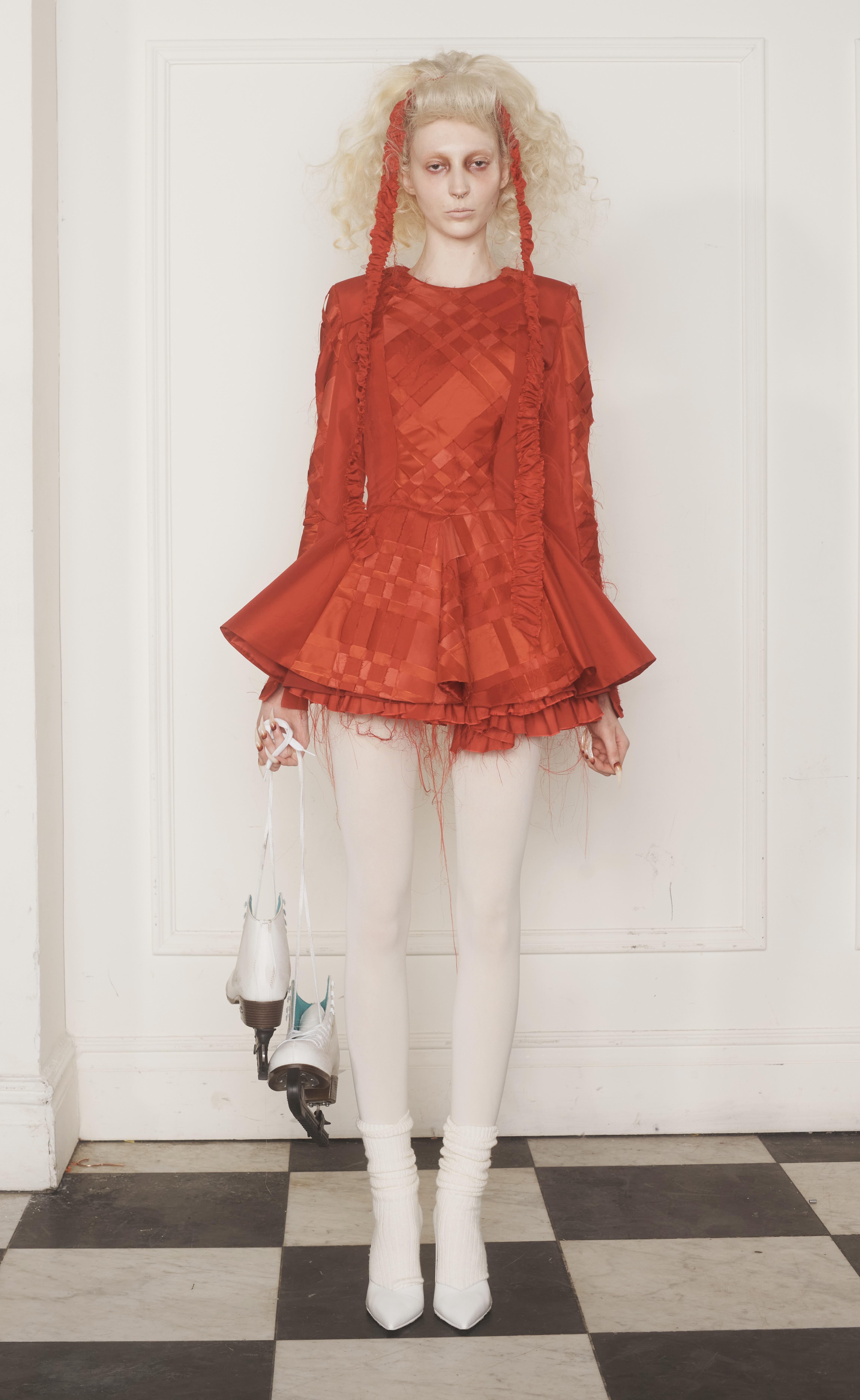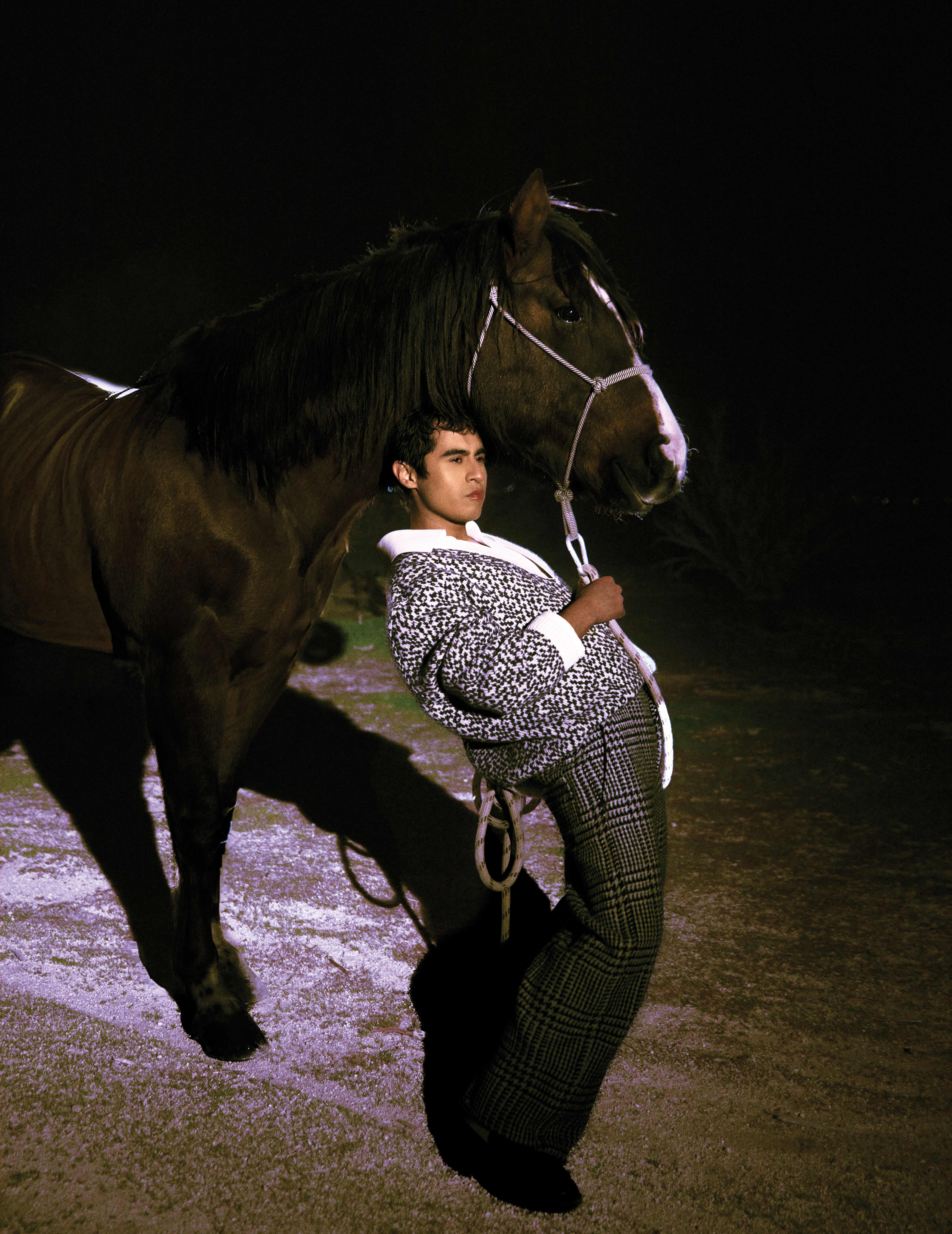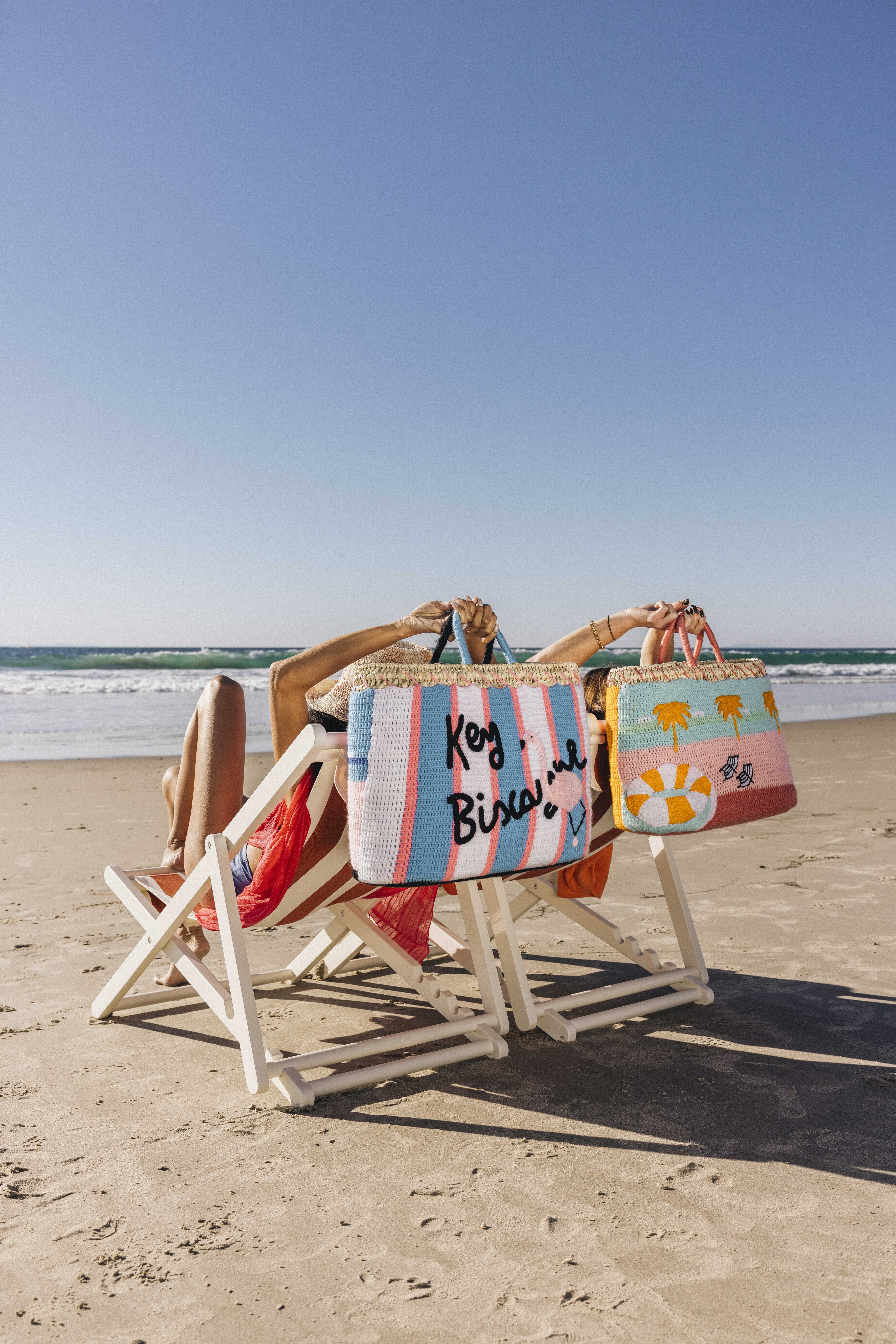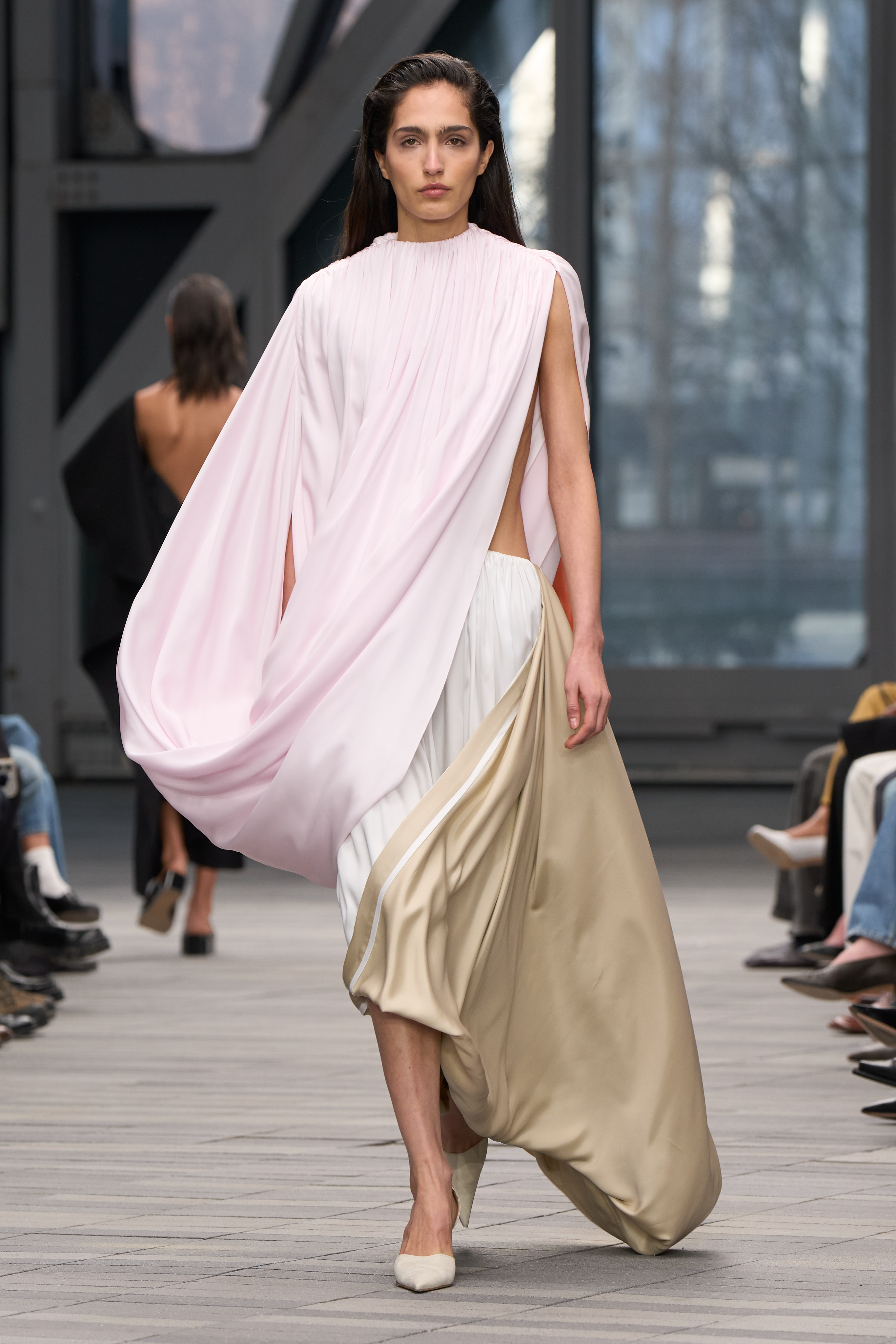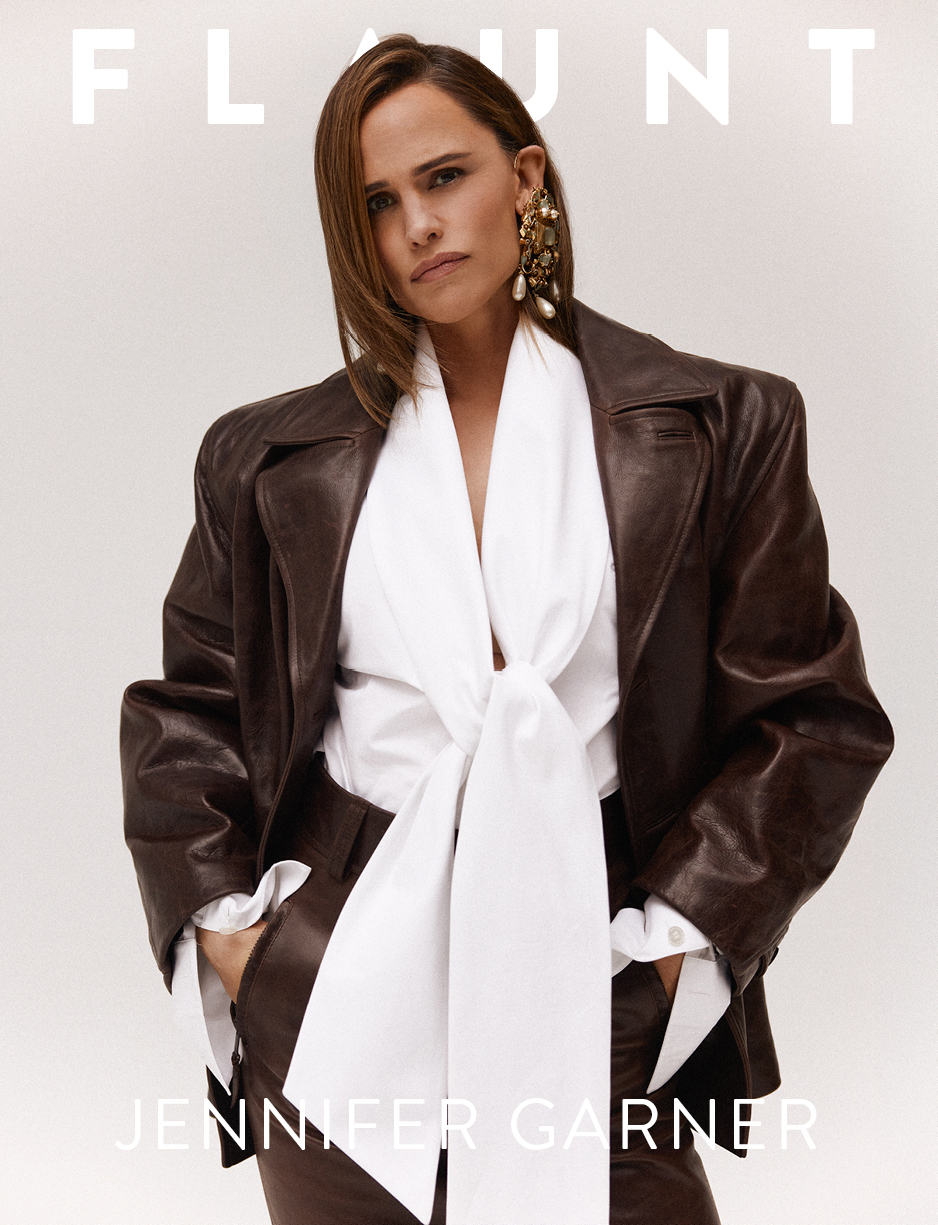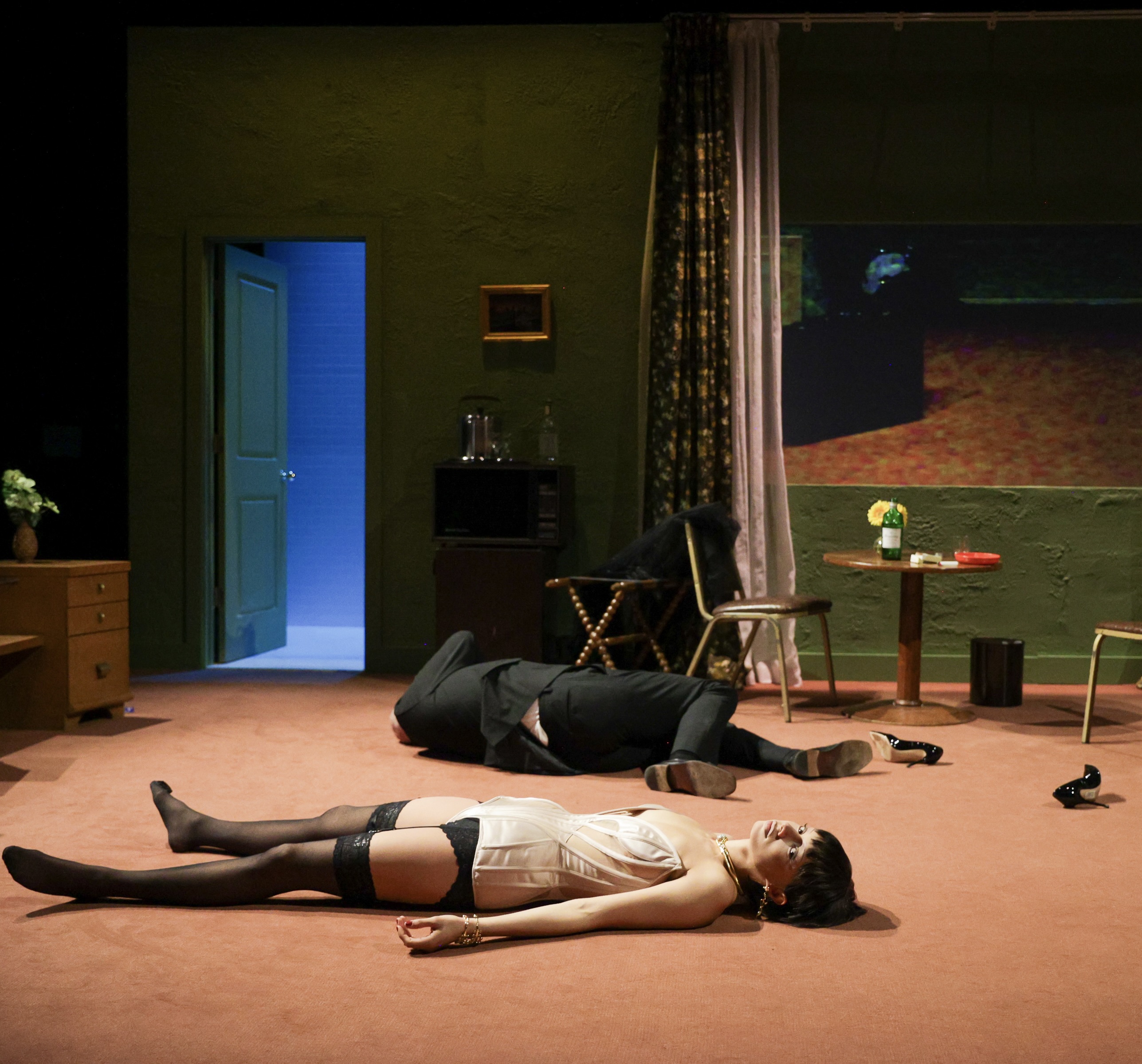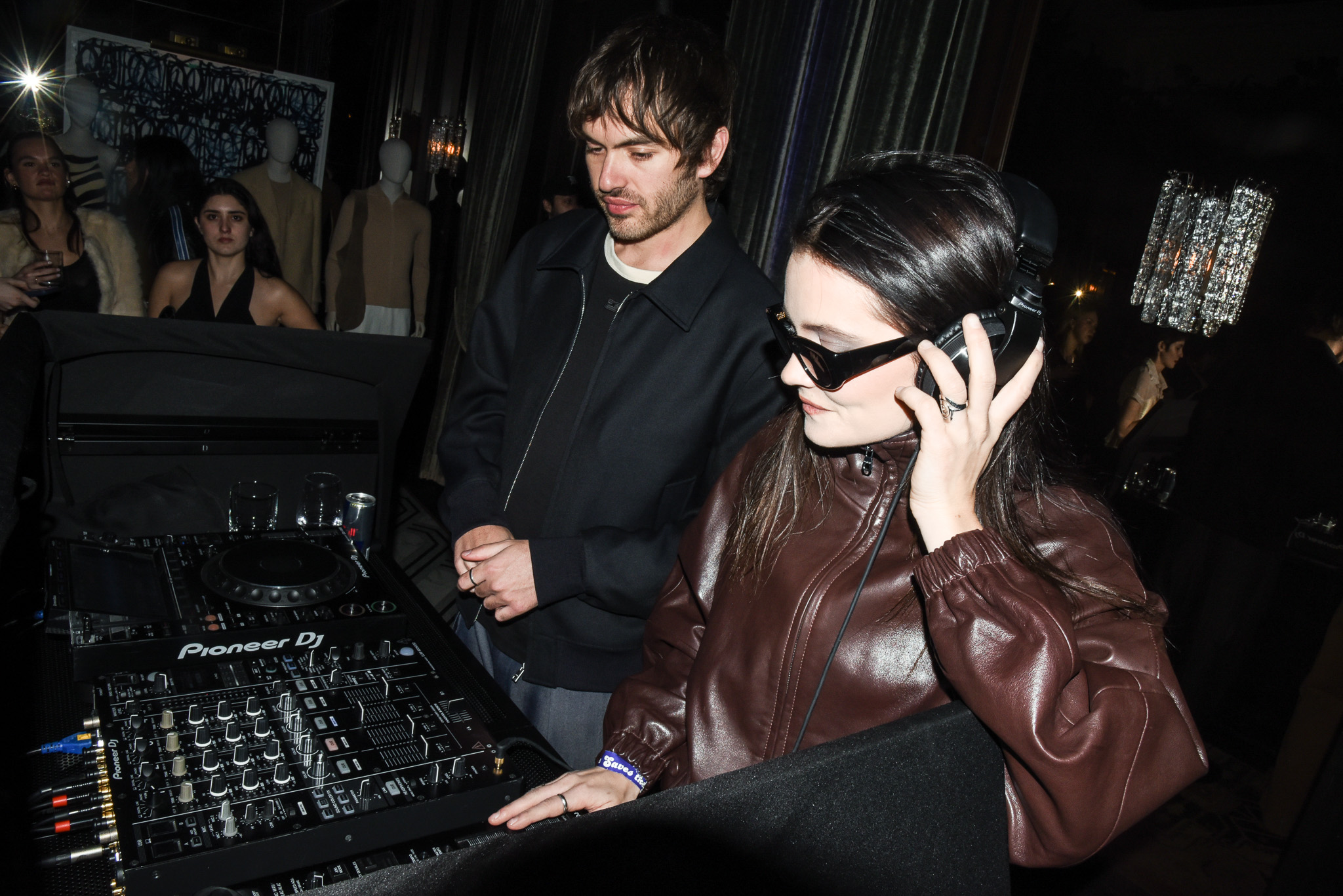
The Kid LAROI is staring into his phone’s camera. He has a ‘90s-style Von Dutch trucker hat on his head—the shot slightly off axis and revealing a plain bedroom wall and an AC vent. After a few heartbeats, he points into the lens of the camera, shrugs inquiringly—as in _are you interested?_ —and as a beat drops he mimes his own lyrics: “I need a bad bitch—Addison Rae—lil’ shawty’s the baddest”.
It’s a nine second Tik Tok video for an audience of one (Addison Rae) and an audience of ten and a half million views. Addison Rae, the 19-year-old Tik Tok megastar, replied to his entreaty with two emojis: a doleful-eyed face, and two index fingers touching each other. A courtship ritual for the age.
“How do I think romance is changing in the pandemic? It’s a lot harder to go and see people,” LAROI tells me, “but a lot of shit is online now. A lot of girls I talk to are just online, and it’s hard to link. I don’t really like the whole romance thing. I try not to get caught up in that too much, but being a teenager that shit just happens.”
The Kid LAROI, born Charlton Howard, is a 16-year-old hip hop artist whose career is detonating upon the digital segmentation and disconnect of a new epoch. An Australian, LAROI’s career has ricocheted from a 12-year-old cutting tracks on Soundcloud, to touring with Juice WRLD, to jumping ship from Sydney to Los Angeles and signing with Columbia Records. It’s an explosive ascent, blowing up along unconventional lines. Found on the internet, expanding on the internet, relegated now—like all musical artists—to only connecting with fans over the internet. His first studio album launches in June.
Juice WRLD, formerly “SoundCloud Rap’s best hope” as the _New York Times_ put it, was not only a stylistic standard bearer for The Kid LAROI—playing a large part in popularizing the unique and melodic, garage distorted style of hip hop known as “SoundCloud Rap”—but was a personal mentor, friend, and collaborator, touring with the young Australian rapper and together recording three tracks. A life cut tragically short, Juice died aged 21 at the end of 2019, from an accidental overdose after swallowing too many percocet during a law enforcement raid that recovered three handguns and 70 pounds of marijuana from a private Gulfstream jet Juice was traveling in. ‘Not like this big bro.’ LAROI wrote on Instagram at the time, ‘I’m gonna make you proud.’
“The thing about the internet is you can’t hide anything from anybody,” LAROI tells me. On his track ‘WINNING’ he raps, “Money brings out the demons / Life changing never seen it / My life changed in an instant / Never been the same since”. LAROI’s mother, brother, and best friend all decamped from Australia to Los Angeles to help him pursue his career. I ask him about the pressure of that: “It’s like pressure and relief at the same time. Because it’s relief that this has happened and it’s finally working for me, but at the same time it’s pressure because you have to still deliver ten times more, and shit’s moving more quickly now.”
LAROI grew up in the south of Sydney in Redfern and Waterloo, with a stint in Broken Hill in between. Broken Hill is a mining town in the baking Outback desert, with hard weather and hard men. It was the setting of the infamous Palm d’Or nominated, _Wake In Fright_ (1971). “Broken Hill’s got like twenty or thirty thousand people in it,” LAROI reflects. “You’re kind of forced to be somebody because everyone’s kind of the same. I really hated my time out there, but at the same time I’m kind of grateful for it, because I was living with my grandparents and I got to spend some time with them. My nan really helped us out.”
I ask whether LAROI thinks that the pandemic is forcing people to face up to a hardness of life better understood by older generations like his grandparents. “I guess, but I don’t really like to say that,” LAROI answers thoughtfully. “That’s kind of weird to say because whatever people go through and whatever feels hard or feels bad for somebody - that’s how they feel. I don’t really like comparing, ‘Oh this person had it worse,’ because at the end of the day each person is in the same way because they feel the same shit.”
The place where LAROI feels his roots run deepest is in and around Redfern, Sydney. Redfern has a storied and profound place in the Australian consciousness, becoming a central staging area for the Aboriginal black power movements of the ‘60s and ‘70s, and having been the place where Australia’s Prime Minister, Paul Keating, finally and for the first time in 1992, acknowledged that European Australians and the government embodied by them, “took the traditional lands and smashed the traditional way of life... We committed the murders. We took the children from their mothers.” The Australian Government forcibly removed mixed-race Aboriginal children from black mothers right through into the 1970s, placing as many as one in three Aboriginal children into institutionalized care and continuing to attempt to shatter a culture whose origins stretch back over 50,000 years.
Despite the Australian Government’s symbolic acknowledgement at the park, Redfern has changed a lot during LAROI’s life, with its proud, blue collar and indigenous identity facing relentless pressure from soaring house prices and white collar gentrification. “They’ve knocked a lot of the houses and buildings down.” LAROI reflects. “The youth service that I used to go to—The Factory— had the council come and talk to us kids, because we were obviously super mad because we had family and relatives in the buildings that they wanted to knock down.”
LAROI’s mother is a Koori (indigenous) woman and he was aware of Redfern Park as a site of political and cultural significance, but really knew it best as the place where “we used to play footy \[rugby league\] with all the boys and all the kids from the area. Redfern and Waterloo that’s the place where I would call home the most, because that’s where I started to find myself and my real friends.”
LAROI’s album comes with expectation, and will feed his dramatically accelerating fanbase. “I just hope to grow as a human being and become better and just evolve with everything I do,” LAROI tells me, “including music and life in general, because I’m still growing up and I’m still learning as I grow.”




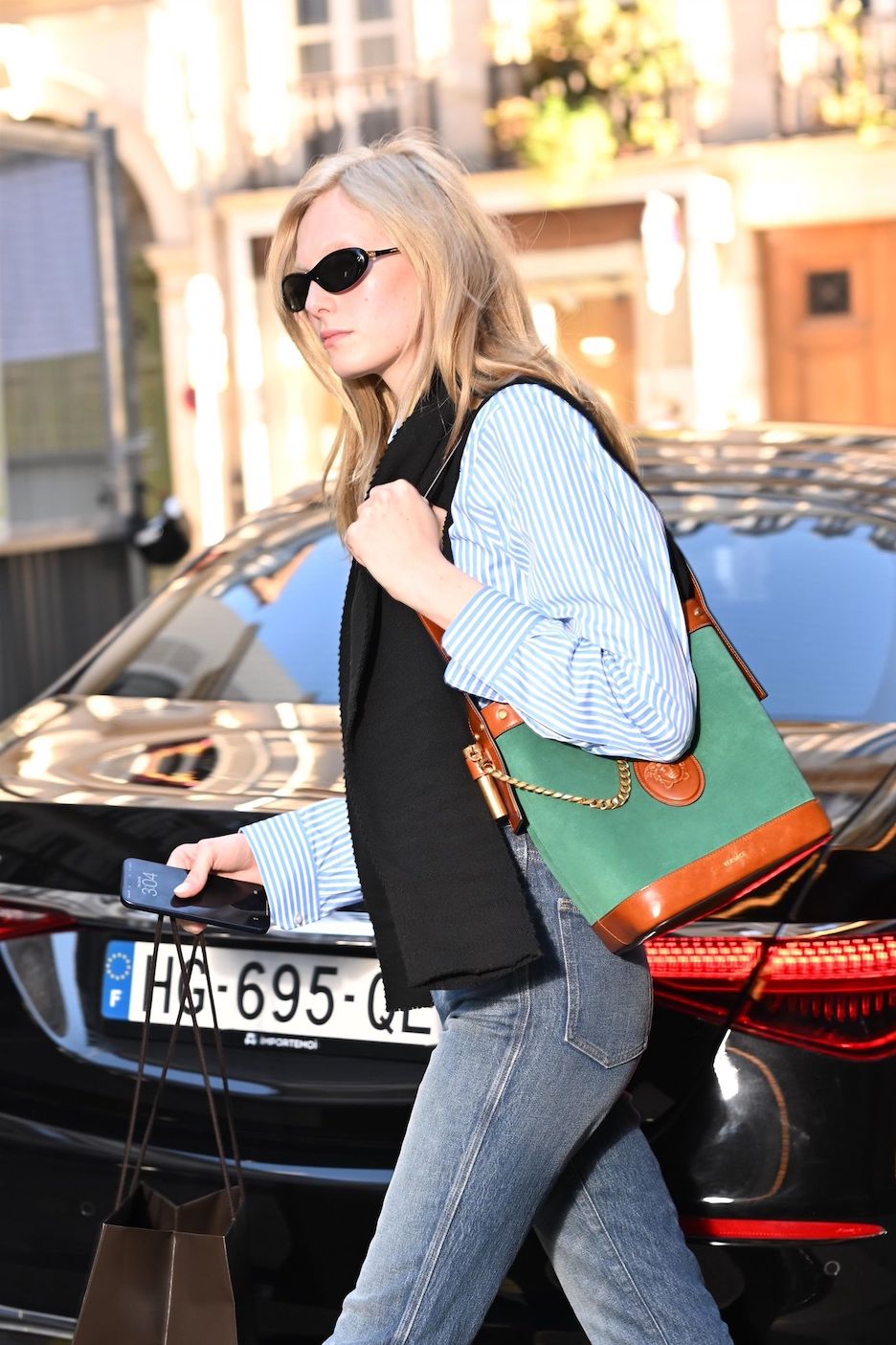
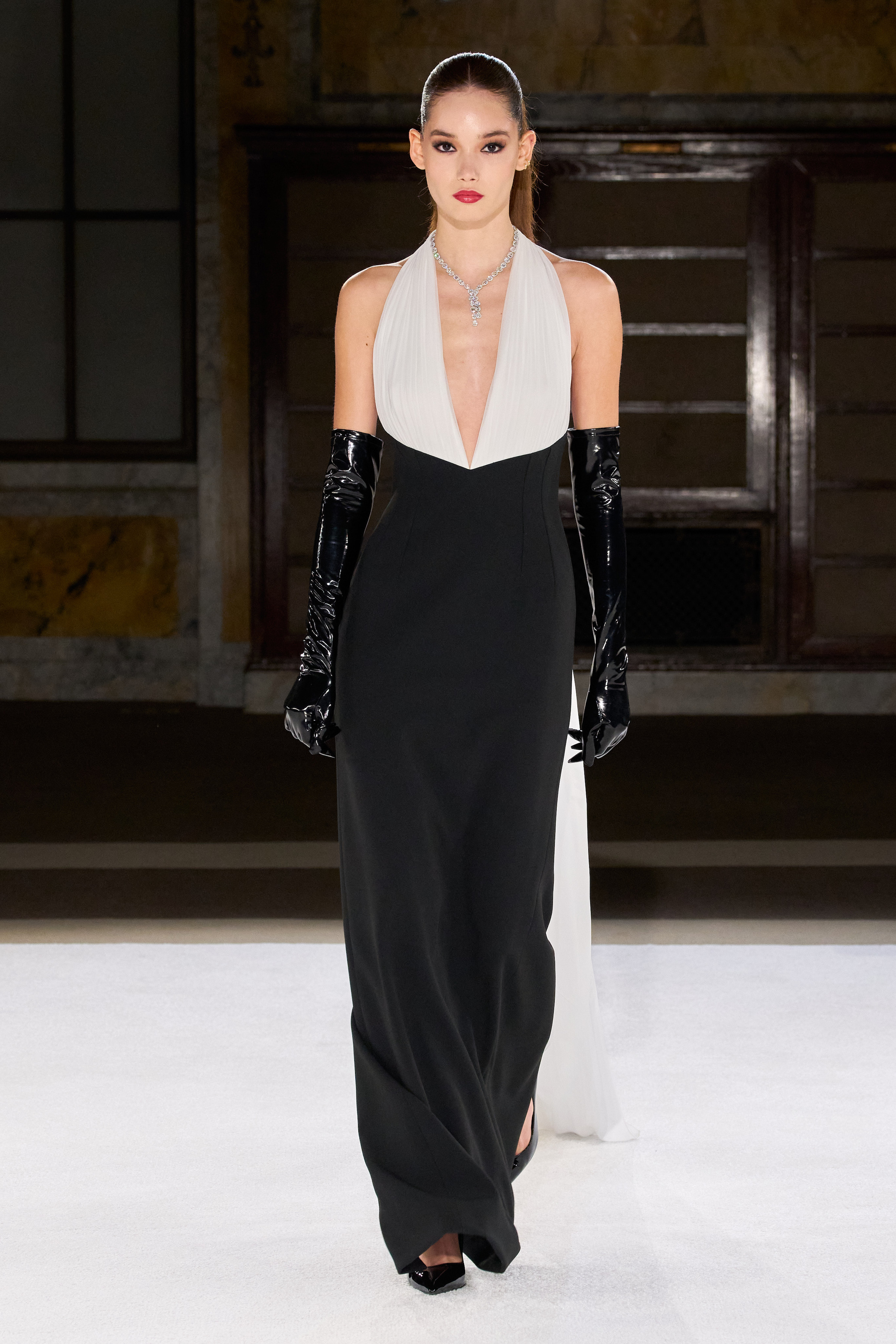
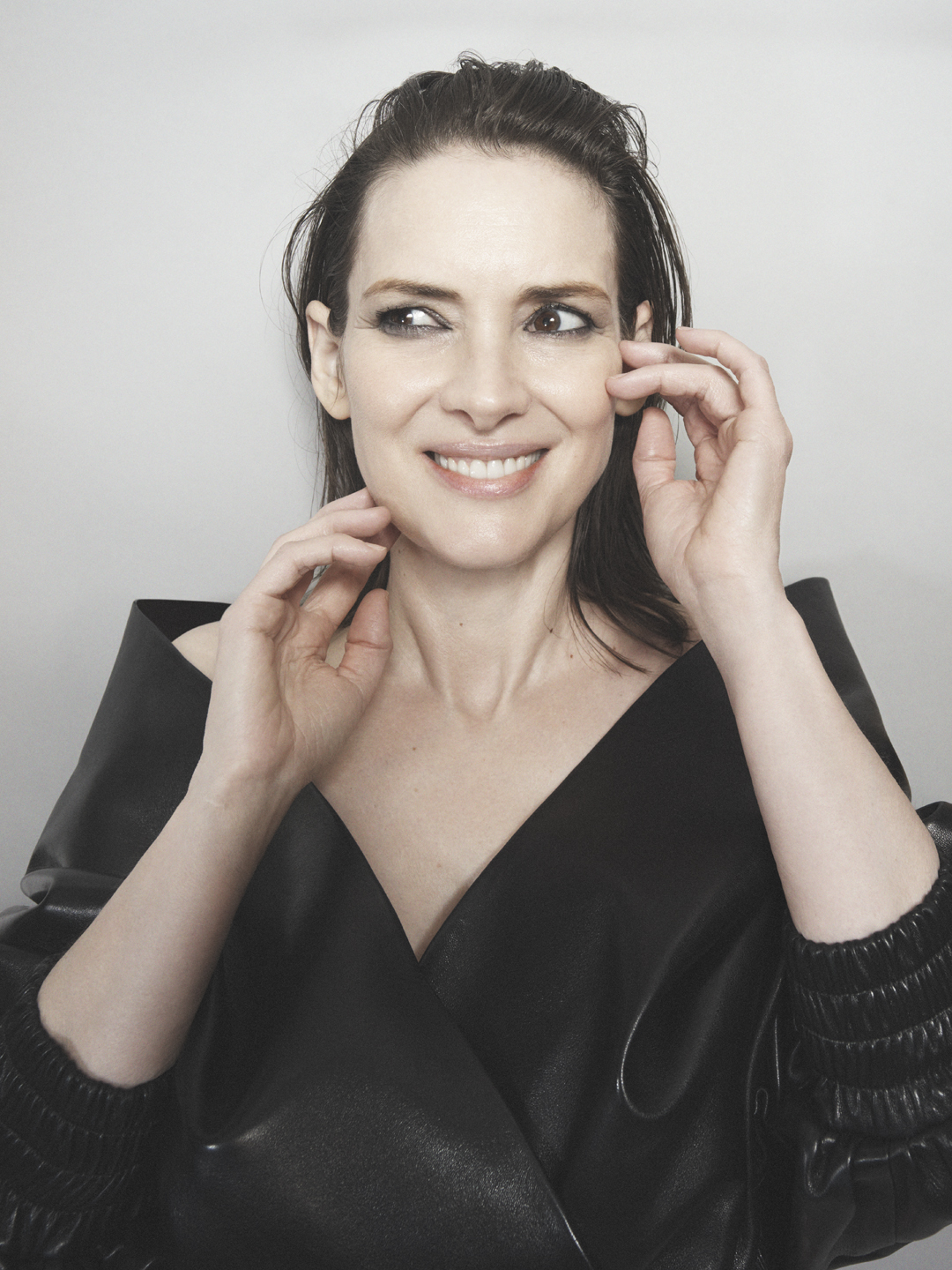
.jpg)
